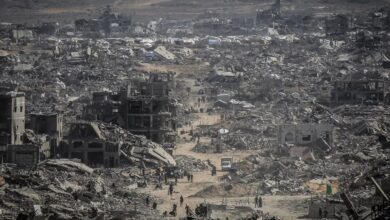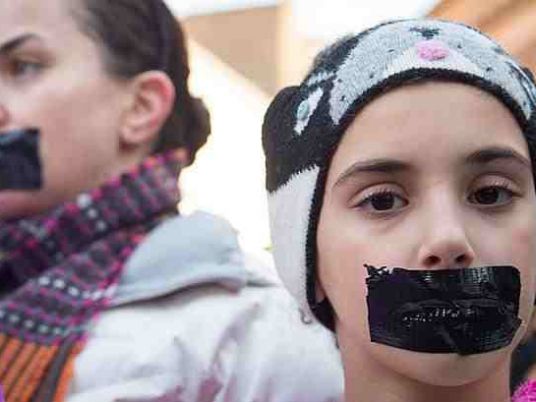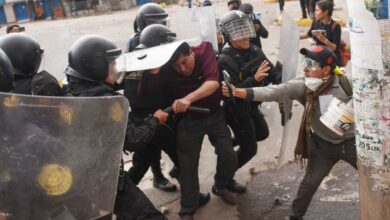The families of 157 political detainees protested in front of the Cabinet building on Tuesday, demanding a general pardon for all those remaining behind bars without having been sentenced.
Islamists have been unfairly detained for decades under the Emergency Law with the pretext of fighting terrorism. The ministry of interior released 755 political detainees since the beginning of February, while thousands remain in prisons.
“They said that there are no political detainees left in prisons. We are here to show them the families of those still detained,” said Mostafa Ibrahim al-Afny, who was just released last month after 17 years in prison with no charges brought. Afny’s brother Tawfik and his son Ibrahim remain incarcerated.
The protesters included the families of 25 detainees who have been imprisoned under investigation for two years in connection with the murder of a Coptic jeweler in May 2008, known as the Zaytoon incident. Two years after their arrest, the suspects remain in custody, reportedly undergoing torture, while prosecution has yet to prove their guilt.
Families of 127 detainees who have been in jail for up to 20 years under the Emergency Law, with no trial or charges pressed against them, also took part in the protest.
Tarek Aboul Azm, a 39-year-old engineer, has been detained with no charge for over eight years.
“If they are guilty of anything, why don’t they prosecute them?” asks Nermeen Aboul Azm, Tarek’s sister.
“My Brother lost the prime of his youth inside prison. He left his son when he was one year old, and he’s now nine,” she adds.
Iman Mahfouz, whose brother Hassan remains detained since last September, despite the issuing of two release decisions in his favor, says that her brother’s only charge is that he is religious.
“They detained our youth just because they are religious and they let the real criminals out,” says Mahfouz.
Demonstrators also protested the 94 sentences, including a majority of life sentences and nine executions, which Islamists received in special courts since 2001, denying their right to a fair trial in a civilian court.




